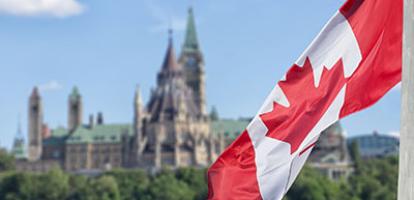It’s a shock to find that Canada is close to the top of the list of countries targeted in these international investment disputes. The UN Conference on Trade and Development’s annual report (2015) puts Canada in fifth place as a respondent state, behind Argentina, Venezuela, the Czech Republic and Egypt – not particularly admirable company.
The federal government announced last week that it would pay Mobil Investments and Murphy Oil about $19-million to satisfy a decision made by a NAFTA investment arbitration panel last year.
The tribunal found that certain guidelines of the Canada-Newfoundland Offshore Petroleum Board were discriminatory and thereby breached Canada’s obligations under the North American free-trade agreement. Although the government is disappointed with the decision, the $19-million payment is a small amount measured against the $66-million originally claimed by these two companies.
While not earth-shattering in dollar terms, the case raises issues about Canada and investor-state dispute settlement provisions (ISDS), not only under NAFTA but replicated in the Trans-Pacific Partnership agreement under active discussion in Ottawa, Washington and other capitals.
It’s a shock to find that Canada is close to the top of the list of countries targeted in these international investment disputes. The UN Conference on Trade and Development’s annual report (2015) puts Canada in fifth place as a respondent state, behind Argentina, Venezuela, the Czech Republic and Egypt – not particularly admirable company.
And all of these cases against Canada have been brought under NAFTA by U.S. investors. There are no arbitrations against Canada under any of our 30 bilateral investment treaties with other countries (which we call foreign investment protection agreements, or FIPAs).
Why is this? Is our legal system so devoid of respect for the rule of law and our policies so bereft of respect for our international treaty commitments that outside investors have no choice but to invoke binding arbitration against Canada more often than against Mexico, Ecuador, India and Ukraine, for example?
Before going too far down this path, there are some things to clarify. First, while Canada is listed as a frequent respondent, many of these investor claims have been either dismissed or haven’t been pursued by the claimants. So the numbers have to be adjusted to the actual cases where NAFTA arbitrations have been decided or are continuing to final disposition.
Even with this, Canada still comes out at the top as a respondent under the NAFTA, with nine active arbitrations on the roster and 12 cases where final awards have been issued – about half of which have been in Canada’s favour.
In terms of the amounts awarded against Canada, one also has to be careful with other numbers. Billions of dollars have been claimed by American investors, but only a very small amount, all totalled, has actually been awarded in their favour.
Even with the latest $19-million decision, the total awards against Canada, in more than 20 years of NAFTA litigation, comes to about $37-million. This includes some cases where Canada and the investor settled out of court.
Excluded from this total is the $130-million settlement with AbitibiBowater following Newfoundland’s expropriation because it was accepted by the province from day one that compensation would be paid. The case never reached the active stage.
So the NAFTA totals, while not negligible, aren’t particularly dramatic. And Canada has won some very impressive victories, including the recent dismissal of an $800-million claim by Mesa Power involving Ontario’s Green Energy Act. Admittedly, there are some pending cases that could change the balance, including hundreds of millions claimed by Eli Lily in a patent case and by Lone Pine Resources regarding Quebec’s moratorium on fracking operations under the St. Lawrence River.
Coming back to the question as to why Canada is such a frequent respondent in these ISDS claims, there are several possible reasons.
The first is that it’s relatively easy for an American investor to sue Canada. We have the same legal traditions – common law – and speak the same language, unlike a claim against, say, Mexico, which would have to be pursued in Spanish and where there’s a civil-law tradition.
Second, the Canadian system is open and transparent. Canadian government documents, even where confidential, can be discovered without too much hindrance and, where not immediately available, our access laws make these available to American claimants without too much fuss.
The third factor is a combination of the generally litigious nature of American companies, who see litigation more than their Canadian counterparts as a cost of doing business, and the fact that retaining Canadian counsel to pursue a NAFTA claim is generally less costly than hiring an American law firm.
As an added bonus, there’s the exchange rate – it’s advantageous for Americans to pay their legal bills in Canadian currency.
A final factor is the availability of third-party financing of these investor claims through different mechanisms, a phenomenon that has a growing influence on stimulating investor claims, not only against Canada but in other jurisdictions around the world.
Where does all this lead? It suggests that, given the existing ISDS provisions in both the NAFTA and the TPP, the exposure of Canada to binding arbitration claims by US investors will not be changed in any substantive way going forward.
While recent improvements have been made to the system in the Canada-EU trade agreement, those won’t change the NAFTA or the TPP investment provisions.
What is of significance, however, is the trend in investment arbitration, including under the NAFTA, showing that tribunals increasingly require investors to discharge a heavy burden in proving international treaty obligations have been violated.
While it may not give perfect comfort, there is a clear tendency in these decisions to dismiss investor claims and uphold non-discriminatory government regulation where there is a demonstrable public interest at stake.
Lawrence L. Herman is principal at Herman & Associates and a former Canadian diplomat. He practises international trade law and is a senior fellow of the C.D. Howe Institute in Toronto.
Published in the Globe and Mail





